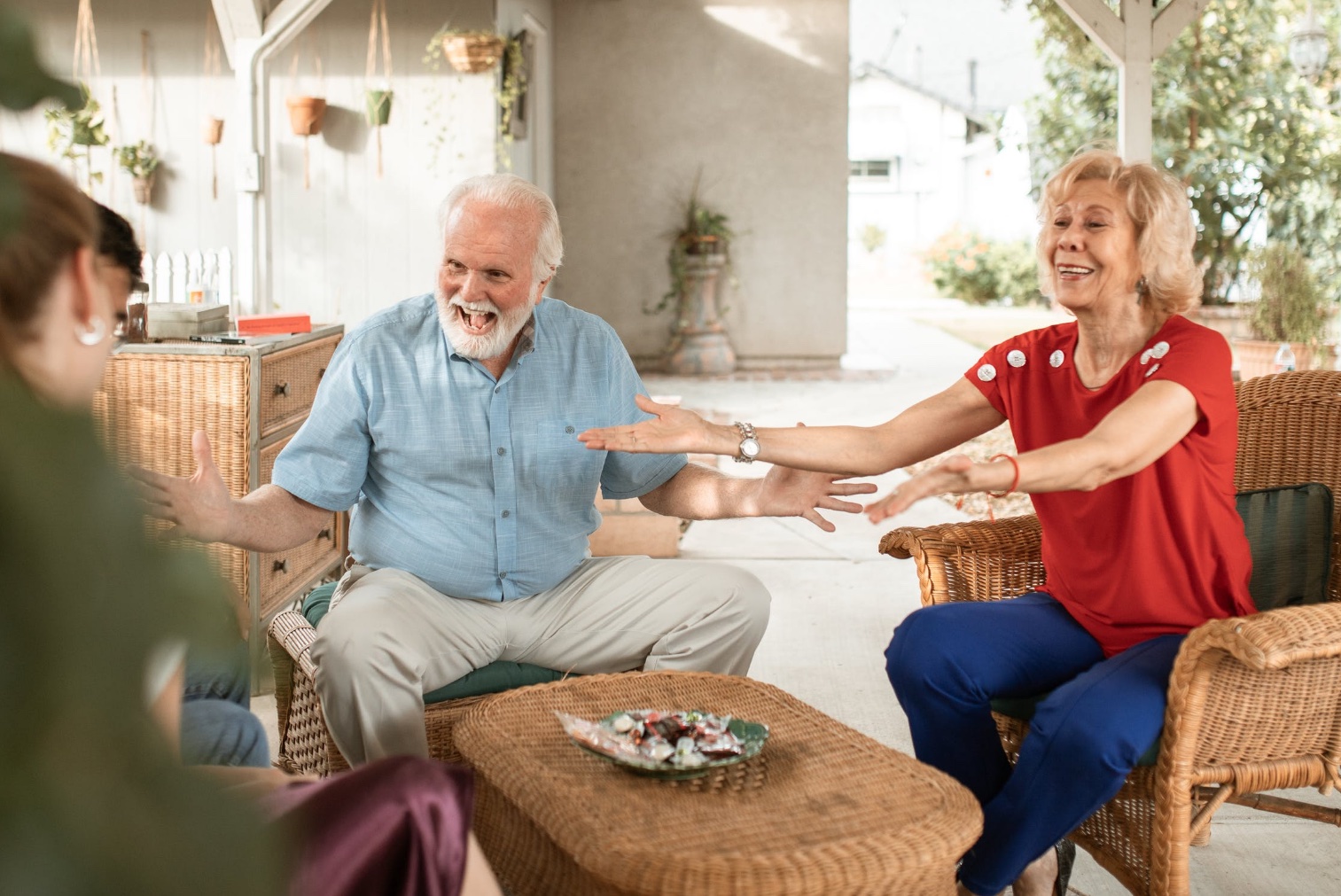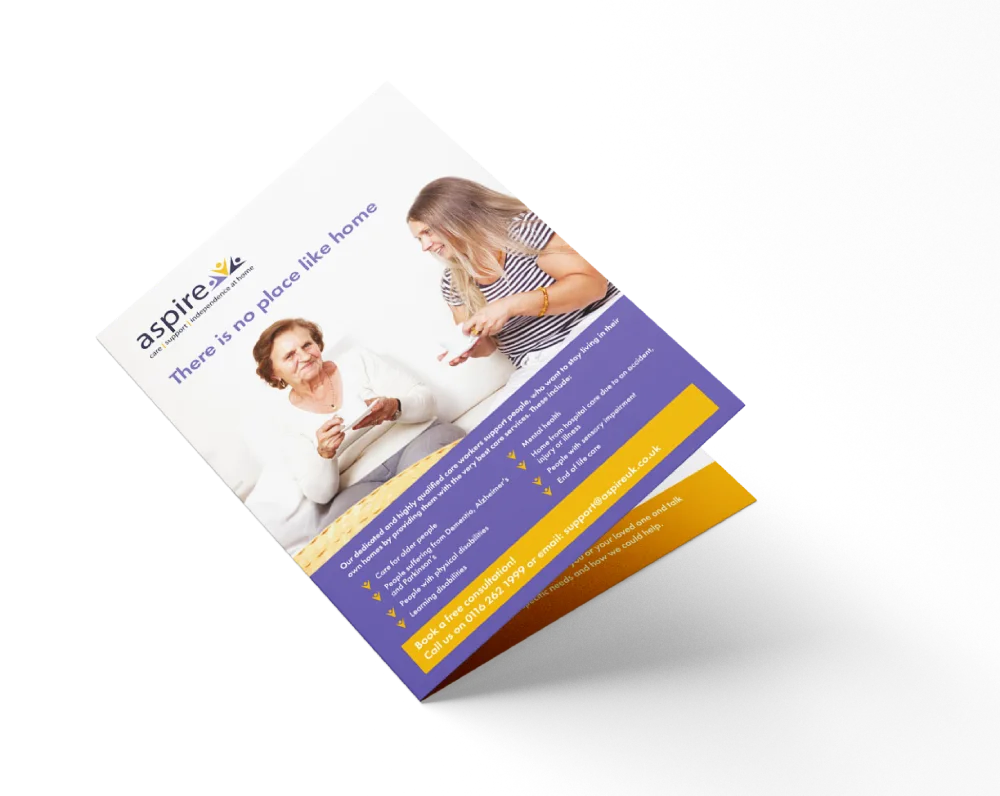Tips for a COVID-Safe Visit with Your Loved Ones

Taking care of your loved ones has always been your top priority. This has only become even more crucial in recent years with the arrival of COVID-19, which can add an extra layer of stress and concern. However, there are ways you can mitigate the risk of catching and transmitting COVID-19 to those nearest and dearest to you.
This blog details the best tips to have a COVID-safe visit with your loved ones, so you can navigate our COVID world in the safest way possible. For further information or personalised advice, seek information from your local GP. To organise care at home for you or your loved one, contact our team at Aspire UK.
All Is Not Lost
As we enter 2022 it can be easy to feel disheartened to realise that we’re still in the midst of a pandemic. It’s understandable if you feel anxious about meeting with others— especially those who may be immunocompromised, elderly, or both. While it’s certainly important to do everything in your power to ensure everybody’s health and safety, there is also mental health to consider.
Socialisation is incredibly important to the human experience, and this remains true— perhaps even more so— during difficult times. It’s been tough to balance keeping physical health as intact as possible while managing your mental health and that of your loved ones. If you have elderly relatives that live alone, loneliness can seriously impact their mental, emotional, and physical health.
As social beings we need to socialise and communicate so we remain connected with society and don’t lose our relationships with others, which helps to reduce depression and anxiety. With that in mind, here are some tips to have a COVID-safe visit with your loved ones with the aim of ensuring safety while you enjoy a catch-up.
How to Have a COVID-Safe Visit with Your Loved Ones
No matter who you’re visiting, it’s important to be vigilant. Don’t let yourself become complacent and go back to pre-2020 times, regardless of how much we’d all like to. If you feel unwell, whether you have a positive COVID test or not, stay home to minimise risks. When you’re well and your visit is going ahead, make sure you:
- Wash Your Hands, and Keep Sanitiser Handy
Washing our hands is something that was drilled into us as children, and it’s now more important than ever. Hands do an excellent job of carrying germs, including those that can transmit COVID-19. Touching an infected surface and then touching your face can invite the virus to take up residence in your body, which can in turn spread it to others. Wash your hands regularly, and refrain from touching your face wherever possible.
When soap and water isn’t available, hand sanitiser is your next best option. Always carry a travel-size sanitiser with you, and make sure it’s within its use-by date. Use it after you touch high-risk surfaces such as doorknobs, handles, and light switches, and before you come into contact with anybody else.
- Mask Up
As COVID-19 is airborne, meaning particles exhaled by an infected person float through the air and can infect others when they breathe, wearing a mask is our best defence. While any mask is better than none, N95 masks typically offer the greatest protection.
Wash or sanitise your hands before putting your mask on. Refrain from touching the front as much as possible, using the ear loops to place it on. Ensure it fits well over both your nose and mouth so that there are no gaps that could allow expelled droplets to flow into the open air.
If your mask becomes dirty or wet, switch to a clean one. Place the mask in a sealable bag until you can dispose of it or wash it in the case of a cloth mask. Wash or sanitise your hands before putting on a mask and after taking it off.
It’s most effective if everybody wears a mask. While sometimes this isn’t possible due to age or medical reasons, it’s still best if you wear a mask even if your loved one can’t (or vice versa).
- Keep Your Distance
Social distancing is a key player in preventing the transmission of COVID-19. Essentially, COVID-19 spreads through droplets, which are expelled through the mouth and nose when speaking, laughing, singing, and so on. A larger distance between you and your loved one (or whoever you’re communicating with) reduces your chances of both catching and spreading the virus.
While specific distance requirements and recommendations changed frequently throughout 2020 and 2021, the core social distancing message remains the same— stay apart to limit the spread. This is especially important in high-risk locations such as hospitals and other medical settings.
Ventilation is also an important factor. The virus can survive much longer in an enclosed, stuffy room than it can in the open air where it can dissipate. While being outdoors offers the greatest protection in this regard, sometimes it simply isn’t possible such as during winter. If you must meet indoors, ensure good ventilation by opening doors and windows wherever possible.
- Isolate If You Test Positive
When you test positive to COVID-19, it’s important to isolate regardless of your vaccination status or your symptoms (including if you’re not experiencing any symptoms). In May 2021, 86% of participants in an English survey reported they fully complied with all rules during their full isolation period. However, this dropped to 74% in June. Isolating reduces the spread of COVID-19, which is important for us all but especially for young children, the elderly, and people with compromised immune systems.
While isolating is never fun, and can be a huge dampener when you feel well enough to do your regular activities, it’s crucial in limiting your spread. What may be mild symptoms to you can manifest as debilitating symptoms for others, and can lead to serious illness or death, especially in the populations described above.
Looking For In-Home Care Services for Your Loved One?
We hope this article has helped to illustrate how taking preventative measures can slow the spread of COVID-19 so that you can safely see your friends and family. If you have a loved one who needs assistance with daily tasks in a COVID-safe way, we offer in-home services to assist with keeping some normality while ensuring your loved one’s health and safety.
To enquire about our home care services, click the button below to contact our friendly and experienced team.

